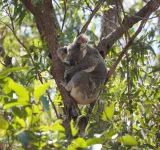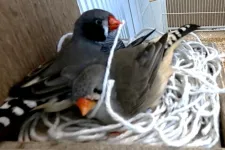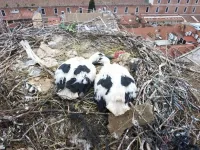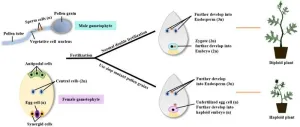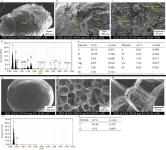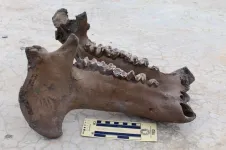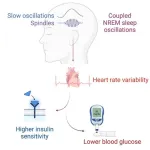(Press-News.org) Ülo Mander, Professor of Physical Geography and Landscape Ecology at the University of Tartu, received the Advanced Grant from the European Research Council to study the cycle of nitrous oxide (N2O), commonly known as the laughing gas, in fens and peatlands, its links to global climate change, and possible land-use practices that could help curb the production of this greenhouse gas in the future.
Laughing gas is one of the most dangerous greenhouse gases produced by microbial life in the soils of agricultural areas and drained peatlands. Reaching the stratosphere, it destroys the ozone layer that protects the Earth from UV radiation. It is estimated to account for 6% of the greenhouse gas impact on climate. However, this share is increasing due to changes in land use and the effects of the increasing use of fertilisers in agriculture. It is, therefore, a crucial factor in the element cycle in nature, having a long-term impact on the planet and humanity, but much is still unknown about its formation, cycle and processes of impact.
Ülo Mander and his research team at the Institute of Ecology and Earth Sciences have, for many years, studied the formation and binding of the laughing gas in the fens and drained peatlands of Estonia and the world. Their work has yielded valuable background knowledge to rely on when moving forward with this topic. The recently funded five-year research project will look into the cycle of laughing gas in three tropical wetland areas that, based on monitoring data, are N2O emissions hotspots: the northern part of Borneo Island in Malaysia, the Amazon lowlands in Peru and the world’s largest tropical wetland area in the Congo Basin, where the nitrogen cycle has not yet been studied in detail by scientists.
“There was a massive drainage of wetlands in Borneo a few decades ago to create oil palm plantations. As palm trees grow on peatland, which in turn is fertilised with nitrogen fertilisers, the world’s highest laughing gas emissions are currently measured there. In the research area in Peru, we have previously investigated the processes in natural palm swamps and areas of self-forested former agricultural land. It is an area where rapid forest growth helps to offset N2O emissions and gives hope that recovery is possible,” Mander explained the choice of sites for the project. As peatlands cover 3–4% of the land surface but store a third of all the carbon and nearly a fifth of all the nitrogen on Earth, they are critical ecosystems on the global scale.
In addition to measuring the N2O emissions from peat soils, the researchers are also interested in the role that tree trunks and crowns of peatland forests play in the cycle of the gas. The measurement devices in Borneo and Peru will be placed above tree crowns to study it. “We want to investigate what is happening in the tropical trees’ foliage that is rich in various algae, mosses, lichens and microbes and can capture some of the gases from the air and produce certain greenhouse gases to the atmosphere,” said Mander.
Incorporating the obtained data into existing N2O cycle models will also enable the researchers to assess the effects of climate change on the nitrogen cycle, predict emission peaks, propose improvements to the data underlying the International Panel on Climate Change (IPCC) reports, and adjust land-use strategies and future scenarios based on them. According to Mander, these strategies have so far been based primarily on the climate impacts of human-induced land use, but climate change has also had a significant effect on the cycles in natural ecosystems. The data on N2O emissions to be collected in the project led by Mander will be a valuable contribution to filling this gap.
The Advanced Grant received from the European Research Council is nearly €3.5 million. The grant is intended for leading top scientists who have achieved outstanding research results over the last ten years. The grant proposal was prepared with the help of the grant writing team of the University of Tartu’s Grant Office.
END
ERC Advanced Grant awarded to study laughing gas and its relation to climate change
2023-07-10
ELSE PRESS RELEASES FROM THIS DATE:
Developer dollars not enough to save species
2023-07-10
Financial payments made by land developers to offset their impacts on threatened species may fall short, according to University of Queensland-led research.
Professor Jonathan Rhodes from the School of the Environment focused on koala populations in the fast-developing South East Queensland region and a government scheme which allows developers to make financial payments to compensate for environmental consequences.
“Just like when you make a financial contribution to offset your carbon emissions when ...
Strawberry fields forever? Strawberry production leaves long-term plastic pollution
2023-07-10
Researchers have found that the plastic mulch used to support the growth of Californian strawberries sheds large quantities of plastic mulch fragments. These particles have been shown to negatively impact soil qualities, casting doubt on the long-term viability of their use. The findings from the survey are likely to apply world-wide to plastic use in agricultural production.
Presenting their work at the Goldschmidt geochemistry conference in Lyon, postdoctoral researcher Dr Ekta Tiwari (from Sistla group at California Polytechnic ...
Beak shape can predict nest material use in the world’s birds, study finds
2023-07-10
The material a bird selects for its nest depends on the dimensions of its beak, according to researchers.
Using data on nest materials for nearly 6,000 species of birds, a team based at the University of Bristol and the University of St Andrews utilised random forest models, a type of machine learning algorithm, to take data from bird beaks and try to predict what nest materials that species might use.
They found a surprisingly strong correlation. Using only information on beak shape and size, they were able to correctly predict broad nest material use in 60% of species, rising to ...
Bees get week early wakeup call from warming climate
2023-07-10
Warmer springs are causing British bees to wake up earlier, a new study has found, threatening the pollination of crops such as apples and pears.
The research – which is believed to be the largest of its kind in Great Britain – found that for every 1 degree Celsius rise in temperature caused by climate change, wild bees, such as bumblebees, emerge from their nests 6.5 days earlier on average.
As spring starts earlier and bees emerge closer to the start of the year, they may lose sync with the plants on which ...
Man-made materials in nests can bring both risks and benefit for birds
2023-07-10
We all discard a huge amount of plastic and other man-made materials into the environment, and these are often picked up by birds. New research has shown that 176 bird species around the world are now known to include a wide range of anthropogenic materials in their nests. All over the world, birds are using our left-over or discarded materials. Seabirds in Australia incorporate fishing nets into their nests, ospreys in North America include baler twine, birds living in cities in South America add ...
Li Yuan 's group from Northwest A&F University has made progress in the study of watermelon haploid induction
2023-07-08
Generating haploid plants for the purpose of obtaining pure doubled haploid (DH) lines is widely recognized as one of the most efficient breeding strategies in modern agriculture. Watermelon (Citrullus lanatus), an important fruit crop known for its nutritional value and flavor, has undergone long-term artificial selection resulting in genetic narrowing. Therefore, there is an urgent need for a haploid induction system to enhance traditional breeding methods and facilitate the development of valuable pure DH lines.
In March 2023, the Plant Biotechnology Journal published an online paper titled "Production of double haploid watermelon via ...
From bad to worse: h=How micro- and meso-plastics collect heavy metals
2023-07-08
Tokyo, Japan – A team led by researchers from Tokyo Metropolitan University studied how microplastics in the environment accumulate heavy metals. As the microplastics spread, so do their toxic cargo. Focusing on polystyrene foam, they collected particles along a river running through Ulaanbaatar, Mongolia. They found significant levels of heavy metals accumulated on the particles, reflecting local land use and industries, as well as surface features like holes and biofilms which help pollutants collect.
The spread of plastic debris into the natural environment is an ecological disaster. As plastic waste makes ...
Madagascar hippos were forest dwellers
2023-07-07
Extinct dwarf hippos that once roamed Madagascar lived in forests rather than open grasslands preferred by common hippos on mainland Africa, researchers at the University of Cincinnati discovered.
The findings suggest grasslands that now cover much of the enormous island off the eastern coast of southern Africa were a relatively recent change facilitated by people rather than a natural habitat sustained in part by these famously large vegetarians.
The study was published in the journal Plants, People, Planet.
When Madagascar broke away from Africa’s mainland 150 million years ago, its plants and animals evolved in geographic isolation in the ...
New research finds deep-sleep brain waves predict blood sugar control
2023-07-07
Researchers have known that a lack of quality sleep can increase a person’s risk of diabetes. What has remained a mystery, however, is why.
Now, new findings from a team of sleep scientists at the University of California, Berkeley, are closer to an answer. The researchers have uncovered a potential mechanism in humans that explains how and why deep-sleep brain waves at night are able to regulate the body’s sensitivity to insulin, which in turn improves blood sugar control the next day.
“These synchronized brain waves act like a finger that flicks the ...
Bilateral total knee arthroplasty linked to increased complication rates
2023-07-07
July 7, 2023 – Patients undergoing bilateral total knee arthroplasty (TKA) are at an increased risk of several types of complications, as compared with matched patients undergoing unilateral TKA, reports a study in The Journal of Bone & Joint Surgery. The journal is published in the Lippincott portfolio in partnership with Wolters Kluwer.
"Patients who underwent simultaneous bilateral TKA were at higher risk of experiencing postoperative complications such ...


